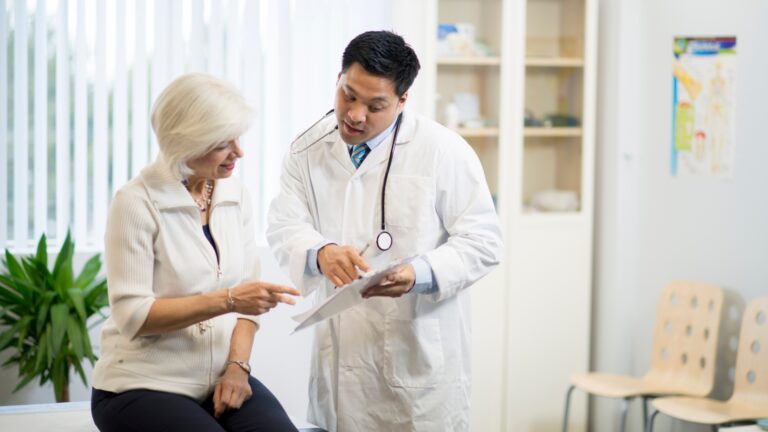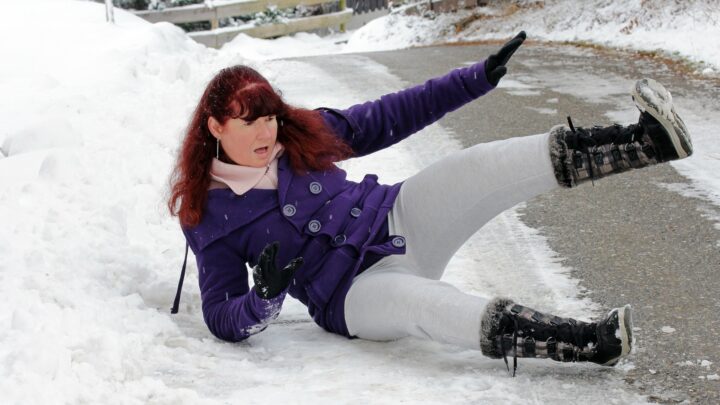Falling is a serious concern for seniors. Each fall carries not just the risk of physical injuries, like fractures that can strip away independence, but also a long shadow over their mental well-being. More than that, the fear of falling again can cause them to become less active and more isolated, and if that wasn’t enough falls bring financial problems due to increased healthcare costs affecting mental health, causing feelings of anxiety and depression.
In this context, taking preventive steps is the smartest thing to do to manage and reduce the negative consequences of falls among seniors.
This blog isn’t just about pointing out dangers. It’s about showing seniors how they can stay safe and strong, so they can enjoy life without worrying too much so let’s start.
General Overview of Falls Among Seniors
To keep seniors safe, we need to look at their physical, mental, and social needs. After that, caregivers, healthcare professionals, and seniors can then work together to reduce the risks and make sure older people stay healthy and happy.
According to the World Health Organization (WHO), an estimated 28-35% of people aged 65 and older experience falls each year, with this increasing notably for those over 80. (https://www.who.int/news-room/fact-sheets/detail/falls). This demographic trend is accompanied by gender disparities, where women, due in part to factors such as osteoporosis and a higher prevalence of chronic conditions, generally experience more falls than men.
A significant percentage of those take place at home, even in nursing homes and assisted living facilities, showing how important it is to good care and make these places safe too. Of course, there are lots of things that can cause them but the most common ones are the wrong administration of medication, chronic conditions like arthritis and neurological disorders, and environmental factors such as dim lighting and slippery surfaces.
It’s important to know that many seniors don’t always tell when they fall, so we might not realize how big the problem is. Even when falls are a leading cause of fractures, some seniors might not share falls with doctors because they’re afraid of losing independence or worried about what others might think.

The Impact of Falls
You might be thinking that having a fracture is bad enough for a senior. Let me tell you something, the impact is bigger. There are many consequences that they may face when they fall such as:
Falls can cause different injuries, like small bruises or more serious ones such as fractures and sprains. Hip fractures are common and can make it hard for older people to move and do things on their own. Sometimes, falls can lead to ongoing pain, affecting the overall quality of life for seniors.
The psychological influence of falls should not be underestimated. Seniors who fall might become scared of falling again. This fear can make them lose confidence in doing daily activities. It’s called “fear of falling.” This fear can make them avoid socializing, do less physical stuff, and feel not as good mentally.
This means they are going to need help to do everyday tasks on their own. It happens due to physical or mental challenges, making them rely on others for help with things like getting dressed or moving around. This creates a need for assistance in daily activities which can lead to feelings of frustration, depression, and, in some cases, a sense of burden on loved ones. This loss of self-reliance can impact their overall well-being and quality of life.
Falls can make existing health problems worse and lead to new issues. If someone gets hurt in a fall and can’t move around much, it may increase the chances of problems like sores, lung infections, and muscle weakness. These problems can really affect the overall health of older people.
Falls don’t just cost money for immediate medical needs. They can also lead to spending on rehab, tools to help, and maybe ongoing care, which can be expensive. Plus, if someone ends up in the hospital, it adds even more to the overall healthcare bill, making it tough on older people and their families financially.
It’s important to know how falls affect older people in many ways. We need to look at their physical, mental, and social needs to keep them safe. Caregivers, healthcare professionals, and seniors can then work together to reduce the risks and make sure older people stay healthy and happy.
Preventive Measures and Interventions
Preventing falls in seniors requires comprehension, and patience since it includes making changes at home, staying active, addressing medical concerns, and being open to technology.
Starting with home modifications, you need to start checking your home. This involves getting rid of tripping hazards like loose rugs, cords, and obstacles in walkways. Ensuring good lighting, adding handrails, using non-slip flooring, and arranging living areas for easy access all contribute to a safer environment.
In terms of Exercise and Physical Activity, engaging in regular strength and balance exercises like Tai Chi and yoga is recommended. Regular walks are good for heart health, and taking part in fall prevention classes can be helpful. Also, remember that seeking advice from healthcare professionals ensures exercise plans are tailored to individual needs.
There is another important area that is the one about medical Interventions, it’s important to regularly review medications with healthcare providers to identify and address potential side effects that may contribute to falls. Regular eye check-ups, managing bone health with enough calcium and vitamin D, and promptly addressing foot issues, especially for those with diabetes, are essential for fall prevention.
As for Assistive Devices, if needed, seniors can use mobility aids such as canes or walkers for extra support and stability. These devices are easy to use and also very helpful, incorporating these assistive devices into daily life ensures safety and independence for seniors.

PERS (Personal Emergency Response Systems)
How familiar are you with Personal Emergency Response Systems (PERS)? These devices keep seniors safe, especially because they prevent and respond to falls quickly,
These wearable or portable devices use advanced communication technologies to connect seniors with emergency services and caregivers. They include a wearable device, a base station, and optional environmental sensors within the home.
PERS allows immediate access to help with a simple button press and enables two-way communication for a quick assessment of emergencies. GPS technology helps locate individuals outdoors, and some advanced devices have fall detection technology that automatically triggers alerts. With monitoring centers operating 24/7, it provides constant vigilance and peace of mind to both seniors and caregivers, supporting the desire for independence and aging in place.
By combining these preventive measures and medical alert devices, seniors and their caregivers can create a safer and more secure living environment, reducing the risk of falls and promoting overall well-being. Regular communication with healthcare professionals is essential to tailor these strategies to individual needs and ensure a holistic approach to fall prevention.
When you are picking a medical alert system, look for one that’s easy to use, responds quickly in emergencies, fits into your daily routine, lasts a long time, and works well with how you live. The best system is simple, gives you reliable help, and makes you feel safe without making your everyday life harder.
Ready to enhance your safety and simplify your life? Choose the Senior Protection Medical Alert Smartwatch today for peace of mind and reliable assistance.
Click here to make your purchase and experience the difference!

